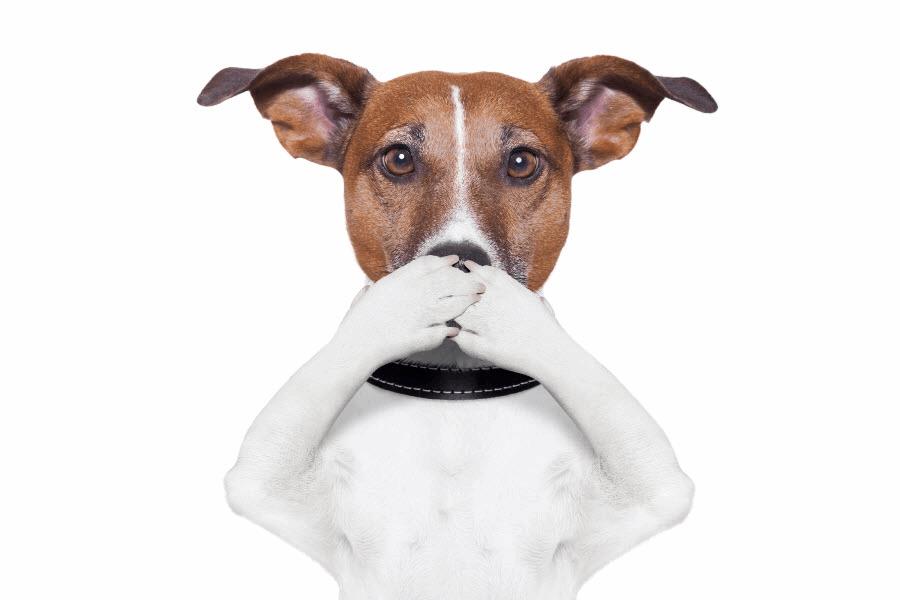While your dog may not exactly have the freshest breath – he is a dog, after all – you have to be vigilant about halitosis (i.e., bad breath) for various reasons. You will neither like smelling in your dog’s bad breath nor worrying about the underlying health issues causing the smelly condition. You should treat persistent bad breath in your dog as a red flag that merits a closer look via a veterinary consultation since it is usually a symptom of an underlying health issue, such as diseases in the gastrointestinal tract or dental infections, among others.
Determining the Cause of Halitosis
You may have several guesses about the cause of your dog’s halitosis but your pet’s veterinarian is the best person who can determine the causes, recommend the appropriate treatment plan, and suggest prevention methods. You should never administer medications to your dog since these can do more harm than good.
A veterinarian will perform a physical examination and order laboratory tests to determine the possible causes for your dog’s halitosis. You have to be ready, too, in answering questions about your pet’s diet, exercise habits, oral hygiene, and general behavior as these usually have relevant bearing on its bad breath.
Halitosis in dogs can be caused by a wide range of conditions including but not limited to:
- Metabolic disorders (e.g., diabetes)
- Respiratory issues (e.g., rhinitis or sinusitis)
- Periodontal disease usually caused by plaque bacteria build-up
- Gastrointestinal conditions (e.g., enlargement of the esophagus)
- Trauma (e.g., electric cord injury)
- Infections caused by viruses, bacteria, or fungi either in the mouth or within the body
- Dietary issues (i.e., eating food with bad smells or eating feces known as coprophagia)
- Poor oral hygiene
Not all cases of halitosis will require immediate veterinary consultation, such as in the case of poor oral hygiene and dietary issues since these can be remedied at home. But when your dog exhibits the following signs, you should schedule a veterinary appointment as soon as possible since these are symptoms of an underlying disease:
- Unusual fruity or sweet breath since it can indicate diabetes. Look for signs that your dog has been drinking and urinating at a greater frequency.
- Urine-like smell, a possible indication of kidney disease.
- Unusually foul odor coupled with lack of appetite, vomiting, yellow-tinged corneas, or yellow gums, which are signs of a possible liver issue.
Basically, when your dog shows signs of illness or injury coupled with the bad breath, you should look at them as red flags and bring your pet to its veterinarian.
Treating Halitosis
Your veterinarian will determine the best treatment plan for your dog depending on the causes of its halitosis. The treatment plan may have multiple components especially in cases when there are multiple causes. For example, your dog may have periodontal disease as well as a foreign object lodged in its mouth so the best treatment will include treatment for the infection and removal of the object.
In case of periodontal disease, the treatment will likely include cleaning and polishing of the teeth, perhaps event extraction of the teeth in case of over 50% loss of the supporting gum tissues and bone around the affected teeth. Medications may also be prescribed to reduce the severity of the odor and control the pathogens causing the infection.
Preventing Halitosis
Don’t assume that just because you have an older dog that it is natural for it to have persistent bad breath. You can take the following measures to reduce the risks for halitosis in your dog, no matter its age, not to mention that you will enjoy reduced veterinary costs when you take these preventive measures.
- Brush your dog’s teeth ideally on a daily basis. Your dog can be trained to like the process of brushing its teeth although emphasis must be made that it takes patience. You can also take your pet to regular grooming sessions at PetSmart for professional polishing and cleaning its teeth.
- Feed your dog with easy-to-digest, high-quality dog food appropriate for its age and physical health. You have to be vigilant about giving your dog with opportunities to eat smelly food, even its own feces.
- Provide your dog with safe chew toys. Chewing cleans your dog’s teeth via a natural process as well as lessens boredom.
- Bring your dog for regular veterinary check-ups. Early detection and treatment of the possible causes of halitosis will not only improve your pet’s prognosis but also improve its overall health.
- Be sure to monitor your dog’s state of health as it relates to its breath.
- Give your dog treats that have been proven effective in improving breath odor; ask your vet about it.
- Discuss oral health products that your veterinarian recommends
Your diligence against halitosis in your dog will ultimately work in your favor. You will love cuddling up to your dog since its halitosis has been resolved!


